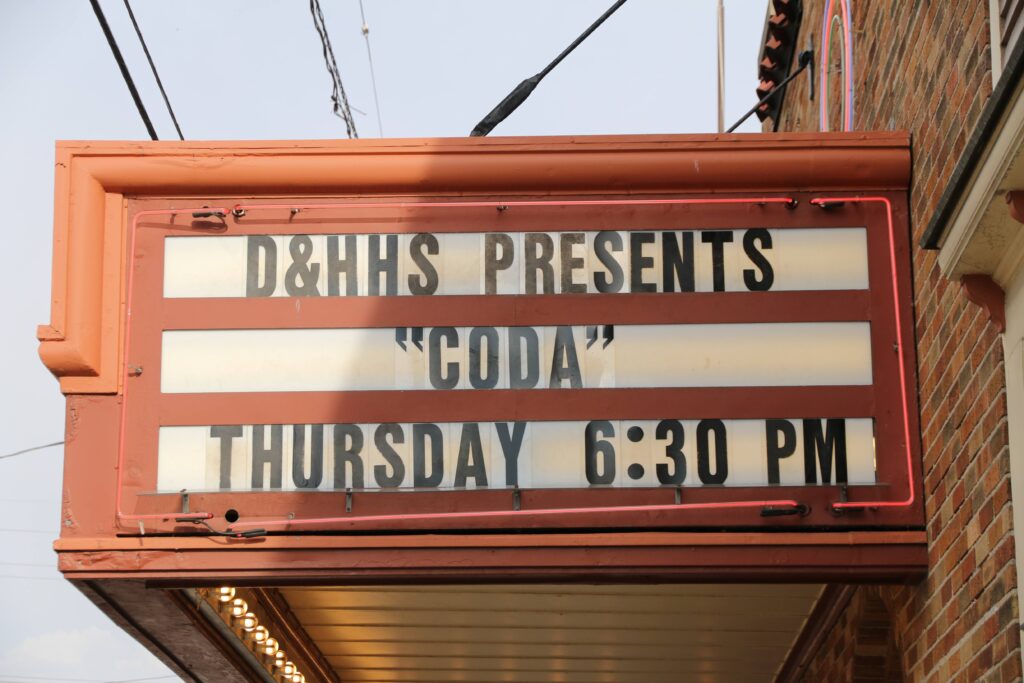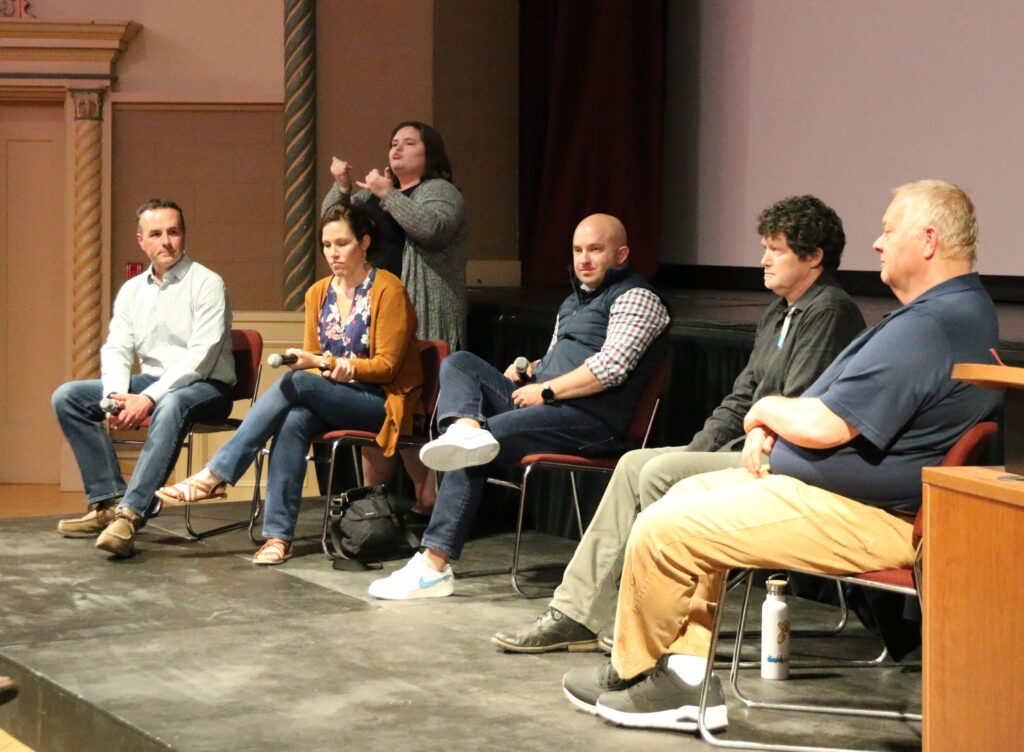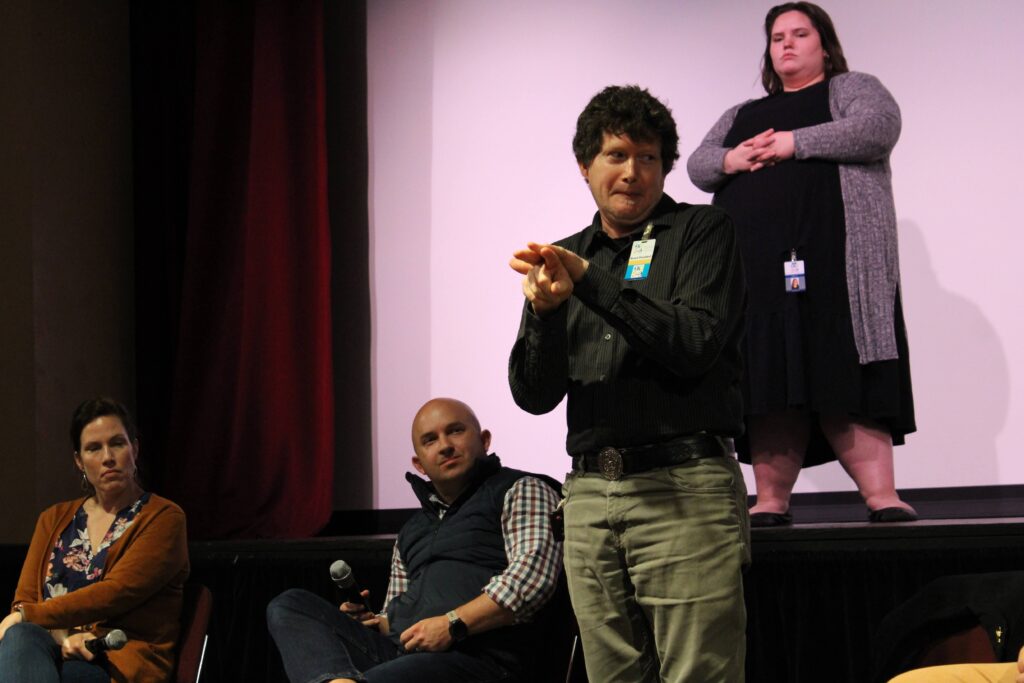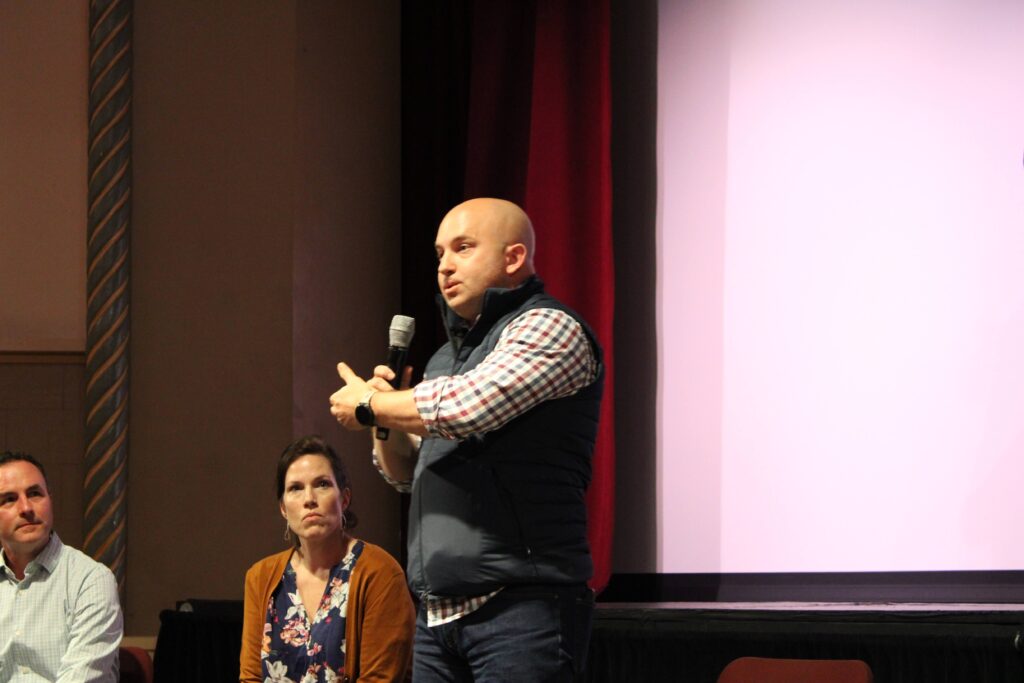CODA Movie and Panel Discussion for Deaf History Month
It was both entertainment and education as Deaf and Hard of Hearing Services hosted a movie night at the Wealthy Theatre as part of its Deaf History Month celebrations.
The entertainment was a showing of the award-winning film CODA, the powerful story of a hearing high school girl and her Deaf parents and brother. Some 110 people took in the movie for free thanks to the sponsorship of Hungerford Nichols CPAs and Catherine’s Care Center.
The education was a panel discussion after the film featuring three CODAs (Children of Deaf Adults) and two Deaf members of the D&HHS board.
Moderated by D&HHS executive director Deb Atwood, the panel discussion gave those who stayed (a majority of the audience), real-life insights into what they had just watched on the big screen
As Deaf adults, Rowan O’Dougherty, president of the D&HHS board since 2018, and Alan McCall, a board member since 2021, weighed in on the movie’s three Deaf characters, the mom, dad and the brother, and some of the insights into Deaf life that the movie illuminated.
To peals of laughter, he noted that the Deaf concepts of privacy shown in the film were also things he experienced growing up Deaf in a hearing family. And McCall said he resonated with the films depiction of the Deaf father’s love for rap music, talking about his music of the 1970s – Bob Seger, Queen, Pink Floyd and more – and how hearing people that would ride in his car were always shocked by how loud he had his stereo system turned up.
But he also spoke movingly about the themes in the movie related to family dynamics, including the strong sense of what it meant to be proud of your Deaf family and also the anger he felt when he perceived that people were laughing at him, his siblings and parents.
The three CODA panelists – Mickey Carolan, a D&HHS board member since 2015; Lera Lowrie and Paul Bischer – shared experiences with the audience that were remarkably similar to each other and to the movie.


Each talked about the pressures of interpreting for their parents at a very young age, often because qualified ASL interpreters were not available.
With a smile Bischer said: “No one would hire a six-, seven- or eight-year-old interpreter, but that’s what I was. And you just want to be a kid sometimes.”
Carolan nodded as Bischer spoke.
“I remember being young, maybe 10 years old, and going with my dad to help him buy a car,” he said. “You bear that burden of communication, and I think during my teen years especially there was a little bit of resentment over that.”
Lowrie said numerous scenes in CODA were relatable to her own experience, but she also praised CODA for its deep Deaf representation.
“I was so glad to see that,” she said.
O’Dougherty and McCall agreed.
“The movie is a great example of what we can do,” McCall said. “To show people that we can act, yes, that is really important.”
O’Dougherty said the same but added that the movie also is important because it brings hearing and Deaf people together for a common cause.
“We have to have people who support us,” he said. “We call those people allies.”
D&HHS community and partnerships manager Erica Chapin said Wealthy Theatre is one such organizational ally.
“We thought it would be a perfect venue for a more private screening,” she said. “They have the knowledge and ability to get licensing to show movies, and they are a local organization, and we think it is important to support each other as much as possible.”
She also praised Hungerford Nichols and Catherine’s Care Center.
“They made it possible for our agency to offer the event and the learning experience,” she said. “Without them, an event like this would not be possible.”


Thank you to our event sponsors


